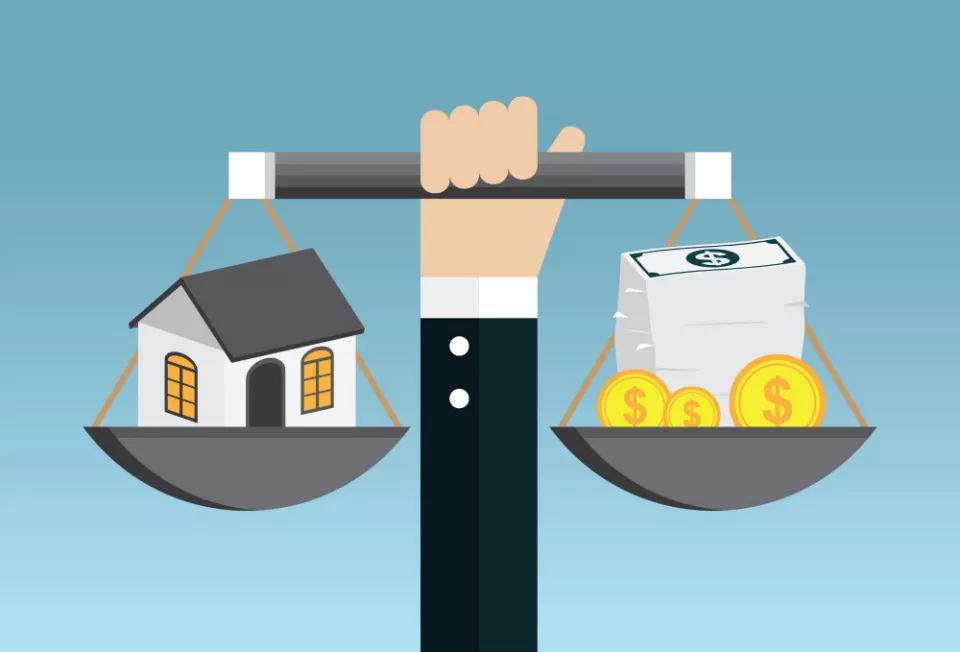
There’s no doubt about it, real estate is a safe investment! But before acquiring property to rent out, it’s vital to calculate its current and/or potential return. Once again, BuyerSide offers you its expert advice to find out all there is to know about rental profitability.
Gross profitability vs net profitability vs profitability on own funds
The profitability of real property is the ratio between the financial revenue and the expenditure. So the higher the revenue compared with the expenditure, the more fruitful your investment. There are three variants that can be used to calculate the profitability: gross, net and on own funds.
Gross profitability: this is very easy to measure and represents your gross revenue in cash compared with your investment. To calculate this, you have to divide the annual amount of the rent by the purchase price of the property, including all the acquisition costs (notary’s fees, registration duties, loan costs, etc.) and multiply the result by 100 to obtain a percentage. As it provides an overall view of what an investment may be, gross profitability is a useful indicator when comparing various investment projects.
Net profitability: net profitability, which is closer to reality, takes account of the various costs and charges related to the rented property. So the calculation is the same except that you have to take out of your gross annual rent revenue the withholding tax on property, any management costs and the various charges that cannot be passed on to the tenant. The big advantage of this calculation is that it provides a far more precise estimate of the return on the investment. This is why it is used to establish the financing plan.
Profitability on own funds: the major advantage of real estate is that it is possible to obtain financing for much of the investment. That is, to have a revenue resulting from a sizeable investment while having put limited own funds into the transaction. So it is interesting to calculate how well your own funds are ‘working’ thanks to the banking leverage put in place. To calculate this, the net annual revenue (used for the net return) less the annual cost of the loan (interest) has to be divided by the amount of the own funds invested.
How can you improve your return?
Even if your return is attractive, it is always possible to improve it and make savings. There are a number of ways of maximising your receipts:
- Above all, negotiate the price of the property as well as possible when making the purchase.
- If need be, renovate your property to enhance its value and thus increase the potential rent and the demand for your property so that it does not remain vacant for a long period.
- If need be, renegotiate your loan to obtain a better interest rate and keep your charges well under control.
- Apartment-sharing usually makes it possible to obtain a higher rent, as does renting furnished property (be sure to take account of the taxes due on furnished properties). Establishing fixed sums for charges (if these are calculated carefully) rather than provisions for charges is another way of improving your return.
